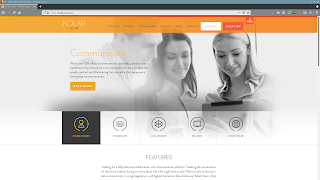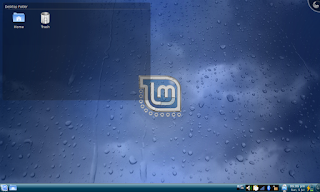We in the open-source world enjoy so many freedoms that we are grateful and thankful for. In general, we reap the benefits of avoiding vendor lock-in, for example, and are free to use and reuse code as we see fit for our own reasons.
We are able to get things done for business, pleasure, and education all with tools freely available to us. All this on an operating system whose underpinnings are the pinnacle example of community contributed code.
It is important to note that when we say freedom, of course we mean Libre - free as in Freedom, not necessarily always freedom from economic realities. Many companies like Canonical, Red Hat, Suse, NextCloud, and even Microsoft all make money from providing the services to clients who deploy their open source technologies. It's a beautiful thing, really.
However it's not just big companies that make money from open source software. Many small niche companies also use these same business models. And all the way down to the single developer level with a simple application maintained on GitHub, and everything in between all comes together to create the User experience that we utilize every day and - at least for me - could not imagine life without.
Keeping it real
On a personal level, I have used Linux now for over 10 years exclusively. Starting with Kubuntu somewhere around 7.10 or 8.04, I was hooked and really never looked back. At one particular point in time for a job I had around then I did run Windows XP in a virtual machine. That was the extent of my interaction with a non Linux operating system. And that was only to access a vendor websites that insisted I run Internet Explorer on Windows.
Since then, even that need has gone away and tools like KMyMoney and LibreOffice and Firefox and many others have come together to allow me to manage my life only using open-source software. Again for this I am extremely thankful, proud, and humbled.
 |
| Open source code, freely distributable and usable by anyone is the life-blood of Libre software and communities |
Paying it forward in the open source world
Sometimes, however, even though the software we use is completely free as in open code, there are reasons one may entertain purchasing software or supporting a community or developers on a personal level. There are a few reasons we may want to do this. Some that come to mind are:
- Supporting a project or developer to encourage them to keep making their software better (and making it at all)
- Supporting companies who are aligned with our technology and / or privacy or other values
- Supporting a community to keep them healthy and innovating
- Supporting people in non-dev roles - bloggers (ahem), publishers, podcasters, artists, and others are just a few that come to mind here
- Supporting content distribution platforms and their contributors that get stuff to users efficiently and easily. OpenDesktop and the KDE Store would be an example here
- Sometimes one may want or need to run a commercial, licensed application on Linux that needs to be paid for in order to use. CrossOver Linux would be one example
- We may want paid-for support for our Linux computers we use for business or mission-critical use-cases
Are any of these mandatory? Of course not. Whether you support an open-source developer or project or content creator or not is entirely up to you. That is part of the whole Freedom deal. Further, one must realize that many do not have the ability to pay at all. Of course there are myriads of other ways one can contribute.
A few real life examples of financially supporting open source
In my case, I will give a few examples of where I have personally contributed in the past. These are just a few small examples, and over the years I have supported many projects and communities in different ways. Both financially as well as other ways as my abilities, time, and / or finances would allow.
I say the above and it is important. For my examples are personal to me and may not be applicable to you. Therefore, I am not endorsing these particular projects for you, dear reader, as your situations (and passions) are likely to be entirely different. Although I would recommend them to anyone if the need fit.
Again these are just examples and you as an individual would have to find your own open source causes to support.
Supporting a service
 |
| KolabNow ticked all my boxes in allowing me to move away from GMail for good |
- They had to use open source technologies
- They had to have the ability to self host if and when I desired to do so
- They had to play well with various email clients once I found the one I really wanted to use long-term
- They had to also respect freedom and privacy
Kolab ticks all of those boxes and instantly became a service that I could see as a long-term replacement for Gmail. Kolab has a service called KolabNow which charges a monthly fee to utilize they're full-featured PIM service. These include email, calendaring, address book, tasks, notes and even file storage. They fit the bill then and continue to do so today, hence while I still use them.
Easy to use and hosted in Switzerland. They are very privacy-focused. I gladly pay for this service monthly.
Supporting a developer
 |
| UKUU Kernel update utility |
I have written here on these pages about UKUU (the Ubuntu Kernel Update Utility), both in its free and recently licensed incarnations. In my case, the freedom and flexibility to download any kernel and install it at will, including release candidates and LTS', along with the ability to easily uninstall them, read the change logs, etc. etc. make the tool extremely valuable to me personally.
As noted in my previous article on UKUU, the developer moved to a paid only version going forward (although the free version still remains in its original repository for anyone to use). I believe that people's hard work should be rewarded, and bought the license.
In this particular product's case, it is a one-time lifetime license fee that gives the user updates forever. Small price to pay for such a valuable thing in my case. Again this fit my needs - hence why I supported the developer. Most users will likely never have to install newer kernels as most of this is taken care of by their distribution.
But there are valid use cases for wanting newer kernels and you can refer to my previous articles on UKUU and elsewhere as to the pros and cons of such a practice. But the long and short of it is that it did what I wanted and I paid for it. No regrets.
Supporting a community
 |
| The elegant Linux Mint KDE4 edition lives on in this author's memory |
One of my first forays into Linux after Kubuntu was the KDE edition of Linux Mint. I really liked the elegance and loved the Linux Mint desktop - especially with its KDE implementation and artwork back then.
I also really liked the idea that Linux Mint's main developer, Clem, was actually able to quit his job to work on his project full-time. This was achieved solely through donations to the Linux Mint community.
As time went on, other devs and support people were added to the team, and Linux Mint became a shining example of what the Linux desktop could be. At the time when I used Mint, I subscribed monthly to giving them a small donation. It felt pretty good knowing that I was a small part of something that was growing and becoming a beautiful thing as well as an active community.
And even though I have since moved on, and Mint has dropped any kind of official support for KDE whatsoever, I do not regret donating money to them back then. If I were using Mint today I would still donate to them I'm sure.
Final thoughts
So here in this article I have provided three examples of supporting open source software: as a service, as a product, and as a community. In two of the cases, the financial obligation was necessary to use the product or service. And in the third example with Mint, while not required, it certainly felt like the right thing to do in order to support something that I used every single day of my life.
Many years ago I wrote about the $5 Challenge and many of those principles still apply today. But even if that's really not your thing, and you are more of the pragmatic type, if the right tool for the job requires a small financial obligation, I'm okay with that.
People need money to eat and live and we cannot expect people to endlessly donate time and resources for free. Sadly this is not how the world works.
Finally, from a purely selfish perspective, I want as many people in open source as possible. And as many people to move to Linux for their everyday computing as possible. While we don't have the marketing arm of huge billion-dollar corporations, we do have each other.
And our communities.


No comments:
Post a Comment